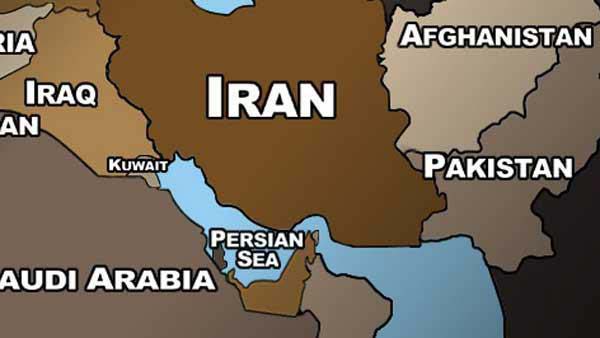Unlike previous meetings when generally diplomats were coming out of meeting room with frown and puckered brows, this time Iranian and western diplomats came out with smile on their faces reflecting their content from negotiation made behind closed doors. Based on reports, negotiation was formally commenced when diplomats of six great powers, China, Russia, USA, Britain, France and Germany, called 5+1 in brief, asked the Iran’s Foreign Minister who was leading the Iran’s nuclear negotiators about his health condition who was suffering back pain. On his way to Geneva, Mr. Jawad Zarif twitted that he was in bad health condition and attended the meeting on a wheelchair. Such a friendly commencement reportedly continued till the end of meeting. Participants from both side expressed their optimisms about the success of the negotiation. What subsequently highlighted much was the consistent design that Mr. JawadZarif presented. The scheme was interpreted as somehow sincere effort of new government to thaw the frozen relation.
But the process is still watched with dazed eyes. Indeed it is not the first time that negotiators are expressing their optimisms about ending the tense relation between Iran and international community. Since the very start of Iran’s controversial nuclear program, many times the negotiation reached to key points but soon failed to thaw the frozen relation.
Though President Hassan Rohani, a semi-reformist figure and the former chief nuclear negotiator came to power generally by the slogan of opening a new chapter in the history of foreign relation, but the mere statements is not completely new. Ayatollah Akbar Hashemi Rafsanjani and Ayatollah Khatemi, the two popular reformist figures made serious efforts to develop a better relation with western countries but failed. Even once the uranium enrichment program was suspended to show that the country is not in pursuit of building atomic bomb but unfortunately it did not work out well. The failure, indeed, further strengthened the conservative fronts inside the country as their reasons appeared stronger that western countries were not indeed in pursuit of peaceful solution rather following policies to weaken the Islamic system or even replace it.
During the government of President Mahmoud Ahmadinejad, windows of hopes were further darkened. He not only showed any green signal of nuclear concession instead made rhetoric statements which pushed the diplomatic solution on the verge. He rejected the Holocaust and openly warned of eliminating Israel from global map. Such hurting statements with aggressive tone of voice remarkably strengthened the position which Israel was looking for. Mr. Mahmoud Ahmadinejad unintentionally dragged his country to verge of complete isolation and gained huge sympathy for Israel, the country which unlike Iran has developed atomic bombs and has not signed the Non-proliferation Treaty (NPT). In another word, Although Iran is a member to NPT but has faced multiple times pressure as that of Israel. The level of economic sanctions imposed on the country during the regime of Ahmadinejad to some extent was not assumed before his rise to power. While the European countries were consistently standing against the pressure of the United States for showing flexibility against Tehran’s nuclear program, ultimately the situation tilted to a direction that some of them demanded for stricter sanctions than that of the US.
So, despite EU was the largest market for the country’s energy, they accepted the economic consequences and stopped importing oil. Considering the economic problems that EU countries were struggling with, their decision showed how they found Iran armed with Nuclear Weapon a realistic threat to global security. Indeed, their decision to tighten the economic sanctions and even put the military option on the table clearly reflected the reality that the international community was serious to stop the country from developing nuclear weapon at all cost. They accepted the consequences of facing economic problems, in another word, accepted to let their people suffer but do not allow Iran to have nuclear weapon. However, it is not clear what would be the reaction of international community if any other country decides to follow the same step of the Tehran but I am certain the global reaction would not be that harsh. Because Iran consistently denied having any secret program for developing nuclear weapon. The only thing that made it sensitive has been mere suspicion otherwise UN’s inspectors, except some problems, could monitor the uranium enrichment sites.
Hence the mere suspicion dragged the country into utter isolation! Even countries like China and Russia which always stood against demands of US and Europe finally yielded and voted for restrictive sanctions. So, indeed it can be said that Islamic Republic without even gaining the nuclear weapon is paying the price. The price is really high if it is considered that the country was not in pursuit of nuclear weapon. It looks stupid to spark such a global hatred and antagonism. There are many countries in the world using nuclear energy but no one care about, to some extent, even support them.
Thus, what has sparked many countries to cut ties and impose sanctions largely lies in the bed of Iran’s regional and global unnecessary brinkmanship. It could have gained the technology with the support of western countries if its rulers were not threatening countries. Seemingly, President Hassan Rohani is currently doing the same thing. He needs to undo the rhetoric and baseless warnings of his predecessor and send a strong signal to the world that his government will not develop nuclear weapon. If it goes well, it is highly possible that a new chapter would be opened in the history of Islamic Republic.

